Fleurs du Mal Magazine


Interweaving elegy, indictment, and hope into a love letter to California, Look at This Blue examines America’s genocidal past and present to warn of a future threatened by mass extinction and climate peril.
 Truths about what we have lost and have yet to lose permeate this book-length poem by American Book Award winner and Fulbright scholar Allison Adelle Hedge Coke. An assemblage of historical record and lyric fragments, these poems form a taxonomy of threatened lives–human, plant, and animal–in a century marked by climate emergency.
Truths about what we have lost and have yet to lose permeate this book-length poem by American Book Award winner and Fulbright scholar Allison Adelle Hedge Coke. An assemblage of historical record and lyric fragments, these poems form a taxonomy of threatened lives–human, plant, and animal–in a century marked by climate emergency.
Look at This Blue insists upon a reckoning with and redress of America’s continuing violence toward Earth and its peoples, as Hedge Coke’s cataloguing of loss crescendos into resistance.
Allison Adelle Hedge Coke, a Fulbright scholar, First Jade Nurtured SiHui Female International Poetry Award recipient, recent Dan and Maggie Inouye Distinguished Chair in Democratic Ideals, and U.S. Library of Congress Witter Bynner fellow, has written seven books of poetry, one book of nonfiction, and a play. Following former fieldworker retraining in Santa Paula and Ventura in the mid-1980s, she began teaching, and she is now a distinguished professor of creative writing at the University of California, Riverside.
Hedge Coke is the editor of ten anthologies and has served as an editor and guest editor for several magazines and journals, most recently World Literature Today. The social media hashtag #poempromptsforthepandemic hosts hundreds of original prompts she crafted as public outreach during the COVID-19 pandemic. A career community advocate and organizer, she most recently directed UCR’s Writers Week, the Along the Chaparral/Pūowaina project, and the Sandhill Crane Migration Retreat and Festival.
Look at This Blue
Author: Allison Adelle Hedge Coke
Language: English
Publisher: Coffee House Press
Pages: 168
Publish Date: March 29, 2022
Type: Paperback
EAN/UPC 9781566896207
Price: $16.95
• fleursdumal.nl magazine
More in: #Modern Poetry Archive, - Book News, - Bookstores, Archive G-H, Archive G-H
« C’est à l’âge de quinze ans que le chant s’est éveillé en moi. Je m’ouvrais à la poésie et entrais, comme par effraction, dans la voie de la création… »
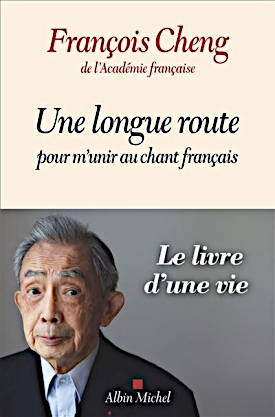 Depuis son premier essai sur l’eau et la soif – unique témoin de son adolescence chinoise qu’il a emporté en France et dont il nous livre aujourd’hui la traduction – en passant par ses rencontres avec Gide, Vercors, Lacan, Michaux, Emmanuel, Bonnefoy et tant d’autres, François Cheng nous fait partager la longue route qui l’a conduit à devenir, lui l’exilé qui ne savait dire ni « bonjour » ni « merci » lorsqu’il est arrivé à Paris, un poète français.
Depuis son premier essai sur l’eau et la soif – unique témoin de son adolescence chinoise qu’il a emporté en France et dont il nous livre aujourd’hui la traduction – en passant par ses rencontres avec Gide, Vercors, Lacan, Michaux, Emmanuel, Bonnefoy et tant d’autres, François Cheng nous fait partager la longue route qui l’a conduit à devenir, lui l’exilé qui ne savait dire ni « bonjour » ni « merci » lorsqu’il est arrivé à Paris, un poète français.
Cette route, malgré les affres de la guerre en Chine, l’extrême précarité matérielle des premières décennies en France, et de cruels tourments intérieurs, mais est toujours éclairée par la poésie française qu’il intériorise au fond de sa nuit solitaire. Elle l’est aussi par un amour passionné pour la langue d’un pays dont François Cheng a fini par épouser le « chant » et le destin. La lumière singulière qui émane de ce récit est celle d’une symbiose qui unit la Voie du Tao et la voie orphique et christique, orientant sans cesse le poète vers l’authentique universel.
François Cheng, de l’Académie française, est à la fois poète (Entre source et nuage, 1990 ; Le Livre du vide médian, 2004), romancier (Le Dit de Tianyi Prix Femina 1998, L’Éternité n’est pas de trop, 2002) et essayiste (Cinq méditations sur la beauté, 2006, L’un vers l’autre, 2008, Cinq méditations sur la mort autrement dit sur la vie, 2013, Assise, 2014). Il a publié De l’âme en 2016.
Une longue route pour m’unir au chant français
par François Cheng
Albin Michel
12 Octobre 2022
Littérature générale
Éditeur: Albin Michel (12 octobre 2022)
Langue: Français
252 pages
ISBN-10 : 2226477306
ISBN-13 : 978-2226477309
Broché €17,90
• fleursdumal.nl magazine
More in: #Editors Choice Archiv, Archive C-D, Archive C-D, Cheng, François
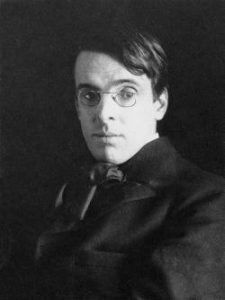
He tells of the Perfect Beauty
O cloud-pale eyelids, dream-dimmed eyes,
The poets labouring all their days
To build a perfect beauty in rhyme
Are overthrown by a woman’s gaze
And by the unlabouring brood of the skies:
And therefore my heart will bow, when dew
Is dropping sleep, until God burn time,
Before the unlabouring stars and you.
William Butler Yeats
(1865-1939)
He tells of the Perfect Beauty
• fleursdumal.nl magazine
More in: Archive Y-Z, Archive Y-Z, Yeats, William Butler
Op 9 maart 1941 begint de dan 27-jarige Etty Hillesum een dagboek. Terwijl de nazi’s haar als Joodse vrouw in Amsterdam steeds openlijker vervolgen, getuigt zij van een imponerende geestelijke vrijheid.
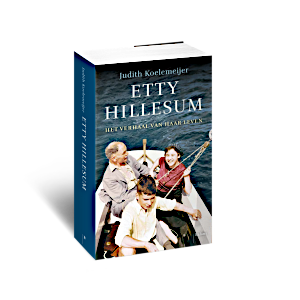 Haar aantekeningen over de liefde, erotiek, familierelaties, vriendschap, geloof, zinloze haat en lotsverbondenheid zijn hoogstpersoonlijk, zeldzaam eerlijk, en tegelijkertijd volstrekt universeel.
Haar aantekeningen over de liefde, erotiek, familierelaties, vriendschap, geloof, zinloze haat en lotsverbondenheid zijn hoogstpersoonlijk, zeldzaam eerlijk, en tegelijkertijd volstrekt universeel.
Sinds de eerste publicatie van haar dagboeken en brieven hebben de geschriften van Etty Hillesum (1914-1943) wereldwijd miljoenen lezers geïnspireerd. Maar wie was zij eigenlijk? Welke vrouw van vlees en bloed gaat schuil achter haar mooie woorden?
Judith Koelemeijer wist een schat aan nog onbekend materiaal te verzamelen. In deze biografie geeft zij een verrassend nieuw perspectief op Etty’s rusteloze jeugd, haar linkse studentenjaren, en haar uiteindelijke keuze om ‘het lot van haar volk te delen’ en niet onder te duiken. Etty Hillesum blijkt iemand met vele gezichten, getekend door een beladen familiegeschiedenis, waaraan zij zich tenslotte tóch weet te ontworstelen.
Etty Hillesum – Het verhaal van haar leven is de meeslepende geschiedenis van een jonge, gepassioneerde vrouw die ook onder de meest gruwelijke omstandigheden trouw bleef aan haar idealen en zichzelf.
Judith Koelemeijer (1967) is schrijver van literaire non-fictie. Zij brak in 2001 door met haar familiegeschiedenis Het zwijgen van Maria Zachea, waarvan meer dan 350.000 exemplaren werden verkocht. Ook haar volgende boeken, Anna Boom (2008) en het autobiografische Hemelvaart – Op zoek naar een verloren vriendin (2013) werden bestsellers. Haar werk werd onder meer bekroond met de NS Publieksprijs en het Gouden Ezelsoor/best verkochte literaire debuut.
Etty Hillesum Het verhaal van haar leven
Auteur: Judith Koelemeijer
ISBN: 9789463821742
512 pagina’s
Uitgever Balans
paperback
€34,95
• fleursdumal.nl magazine
More in: #Biography Archives, - Book News, - Bookstores, Archive G-H, Archive K-L, Etty Hillesum, Holocaust
Why Misread a Cloud takes its name from clouds of ash and smoke in wartime which appear to the author as a “storm, blown over the sea.”
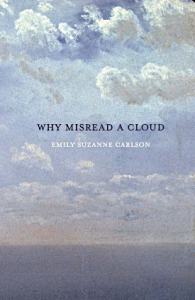 Both an exploration of the mind’s ability to turn what is into something else, in order to survive, and the mind’s ability to resist the effects of psychosocial warfare imposed by the military and the police.
Both an exploration of the mind’s ability to turn what is into something else, in order to survive, and the mind’s ability to resist the effects of psychosocial warfare imposed by the military and the police.
“Who wants you to be afraid” the poet’s friend asks as he “added sugar to his tea.” The realization this question brings enables the poet to explore forces that separate us from one another and ways we rise up within ourselves to move through fear toward love.
Emily Suzanne Carlson (she/they) is a mother, a poet, a teacher, and the director of Art in the Garden, a liberatory, anti-racist, LGBTQ+ welcoming, and joy-centered program that addresses the impacts of childhood adversity and trauma. Emily is the author of two prior collections: I Have a Teacher (Center for Book Arts 2016), and Symphony No. 2 (Argos Books, 2015). Emily earned a BA from Sarah Lawrence College and an MFA from the University of Pittsburgh. With friends, they run the Bonfire Reading Series. Emily lives with their partner and their three children in an intentional community centered around an urban garden in Pittsburgh, Pennsylvania.
Why Misread a Cloud
Emily Suzanne Carlson
Pub. Date: 10/31/2022
Publisher: Tupelo Press
ISBN: 978-1-946482-79-2
Binding: Paberback
Pages: 42
Price: $ 17.95
• fleursdumal.nl magazine
More in: #Editors Choice Archiv, - Book News, - Bookstores, Archive C-D, Archive C-D
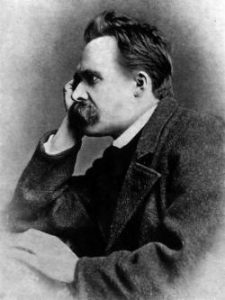
Das trunkene Lied
O Mensch! Gib acht!
Was spricht die tiefe Mitternacht?
»Ich schlief, ich Schlief -,
Aus tiefem Traum bin ich erwacht: –
Die Welt ist tief,
Und tiefer als der Tag gedacht.
Tief ist ihr weh -,
Lust – tiefer noch als Herzeleid:
weh spricht: Vergeh!
Doch alle Lust will Ewigkeit –
– Will tiefe, tiefe Ewigkeit!«
Friedrich Nietzsche
(1844 – 1900)
Das trunkene Lied
• fleursdumal.nl magazine
More in: Archive M-N, Archive M-N, Friedrich Nietzsche, Nietzsche

Schwangeres Mädchen
Du schreitest wunderbar in mittaglicher Stunde,
Um Deine Brüste rauscht der reife Wind,
Ein Lichtbach über Deinen Nacken rinnt,
Der Sommer blüht auf Deinem Munde.
Du bist ein Wunderkelch der gnadenreichen
Empfängnis liebestrunkner Nacht,
Du bist von Lerchenliedern überdacht,
Und Deine Last ist köstlich ohnegleichen.
Ernst Toller
(1893 – 1939)
Schwangeres Mädchen
• fleursdumal.nl magazine
More in: Archive S-T, Archive S-T, Toller, Ernst
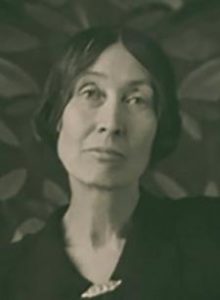
Submerged
I have known only my own shallows –
Safe, plumbed places,
Where I was wont to preen myself.
But for the abyss
I wanted a plank beneath
And horizons…
I was afraid of the silence
And the slipping toe-hold…
Oh, could I now dive
Into the unexplored deeps of me –
Delve and bring up and give
All that is submerged, encased, unfolded,
That is yet the best.
Lola Ridge
(1873-1941)
Submerged
• fleursdumal.nl magazine
More in: Archive Q-R, Archive Q-R, Ridge, Lola
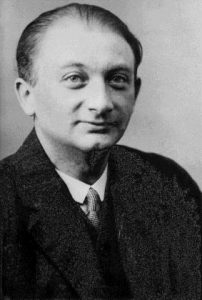
Lied der ungeborenen Kinder
Wir sind nur ein leises zartes Wehen
Ihr könnt uns nicht sehen
Wir sind nur Gedanken und leichter als Hauch
Aber wir leben auch.
Wir sind nie gewesen, wir durften nicht sein
Nur Wünsche sind wir, nicht Fleisch und nicht Bein
Eure innigsten Träume waren wir mal
Und sind jetzt Eure Qual.
Wir schweben um Euch als leichter Duft
Ihr greift nach uns und greift die Luft
Wir sind gar nicht da und Ihr könnt uns nicht fassen
Ihr müsst uns hassen.
Nur in manchen Träumen fangt Ihr uns ein,
Dann liegen wir an Euren Herzen
Und träumen lächelt Ihr der Schmerzen
Und denkt nicht der Qualen, die wir Euch gemacht,
Bis Ihr erwacht.
Joseph Roth
(1894 – 1939)
Lied der ungeborenen Kinder
• fleursdumal.nl magazine
More in: Archive Q-R, Archive Q-R, Joseph Roth

Who told who what
Theo told Guy and Guy told Declan
and Declan told Anne who told me
you were dead.
I told your ex-Chloe
and Chloe told your mother.
Jamie, your brother was told by Anne.
Philippa, your social worker already
knew for two days but told no one,
we had to find out from each other.
Jamie spoke to your mother
and your brothers and sister.
I told other friends who told me
they would come to your funeral.
The Crisis centre said they couldn’t talk to me
due to the Data Protection Act.
I couldn’t confirm any of the stories I was told.
The centre said they would get in touch
with me after checking who I was, but didn’t.
I was still waiting when I knew you had died.
Vincent Berquez
Poem: Who told who what
Vincent Berquez is a London–based artist and poet
• fleursdumal.nl magazine
More in: Archive A-B, Archive A-B, Berquez, Vincent, Vincent Berquez
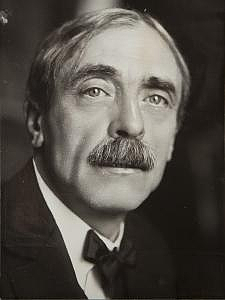
Naissance de Vénus
De sa profonde mère, encor froide et fumante,
Voici qu’au seuil battu de tempêtes, la chair
Amèrement vomie au soleil par la mer,
Se délivre des diamants de la tourmente.
Son sourire se forme, et suit sur ses bras blancs
Qu’éplore l’orient d’une épaule meurtrie,
De l’humide Thétis la pure pierrerie,
Et sa tresse se fraye un frisson sur ses flancs.
Le frais gravier, qu’arrose et fuit sa course agile,
Croule, creuse rumeur de soif, et le facile
Sable a bu les baisers de ses bonds puérils;
Mais de mille regards ou perfides ou vagues,
Son œil mobile mêle aux éclairs de périls
L’eau riante, et la danse infidèle des vagues.
Paul Valéry
(1871-1945)
Naissance de Vénus
Poème
Album de vers anciens
• fleursdumal.nl magazine
More in: Archive U-V, Archive U-V, Valéry, Paul
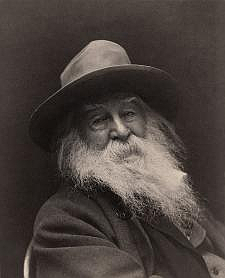
When I Heard at the Close of the Day
When I heard at the close of the day how my name had been receiv’d with plaudits in the capitol, still it was not a happy night for me that follow’d,
And else when I carous’d, or when my plans were accomplish’d, still I was not happy,
But the day when I rose at dawn from the bed of perfect health, refresh’d, singing, inhaling the ripe breath of autumn,
When I saw the full moon in the west grow pale and disappear in the morning light,
When I wander’d alone over the beach, and undressing bathed, laughing with the cool waters, and saw the sun rise,
And when I thought how my dear friend my lover was on his way coming, O then I was happy,
O then each breath tasted sweeter, and all that day my food nourish’d me more, and the beautiful day pass’d well,
And the next came with equal joy, and with the next at evening came my friend,
And that night while all was still I heard the waters roll slowly continually up the shores,
I heard the hissing rustle of the liquid and sands as directed to me whispering to congratulate me,
For the one I love most lay sleeping by me under the same cover in the cool night,
In the stillness in the autumn moonbeams his face was inclined toward me,
And his arm lay lightly around my breast – and that night I was happy.
Walt Whitman
(1819 – 1892)
Poem: When I Heard at the Close of the Day
(Published in the Leaves of Grass. 1900)
• fleursdumal.nl magazine
More in: Archive W-X, Archive W-X, Whitman, Walt
Thank you for reading Fleurs du Mal - magazine for art & literature